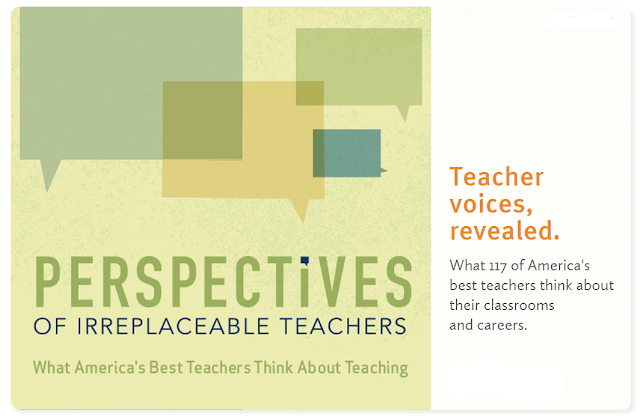We hear from politicians often what needs to be done to improve basic education. We hear the voices of policy makers and reformers. This blog has also shared views from teacher groups or unions in the Philippines as well as in the United States. But what do teachers who have been recognized as effective and among the best in the United States really think? The New Teacher Project (TNTP) tries to answer this question in its new paper, "
Perspectives of Irreplaceable Teachers":
The first piece of result that really caught my attention is the view of these teachers on ineffective teaching as a problem in education:
What is striking is how the number of "Strongly agree" shrinks from the profession in general (41%), to the school district (20%), and to one's own school (8%). The problem seems to be disappearing as one gets closer to home. Is this similar to Brian Langley's Lesson #1 on education: "
Americans think the nation's public schools are troubled, just not the public schools their kids attend"? There are incompetent teachers everywhere except in the school where I teach. Or, is this a symptom that effective teachers tend to congregate? Even deeper, is this a sign that teachers really learn from each other such that where there are effective teachers, chances of improvement of the entire teaching staff are much higher? The answer to this question is perhaps provided by the responses of effective teachers to the following question:
An overwhelming majority (93%) agree that observations of other teachers at work in their own classrooms contributed to their success in the profession. Teachers learn from each other and schools that have effective teachers help the entire teaching staff to improve the quality of instruction. There are other interesting trends reported in the survey like the "love/hate" relationship of effective teachers with the profession. This is a precarious position especially when considering that most are not inclined to stay in the profession after five years. What is especially insightful is the low regard given by these effective teachers on formal professional development and the high regard they give on opportunities to learn from their colleagues. This certainly matches their other perspectives so it must be taken seriously.



Thank you Sir. I am new to your blog. I am also a teacher. Where can I get the latest salary scale for public school teachers in the Philippines?
ReplyDelete